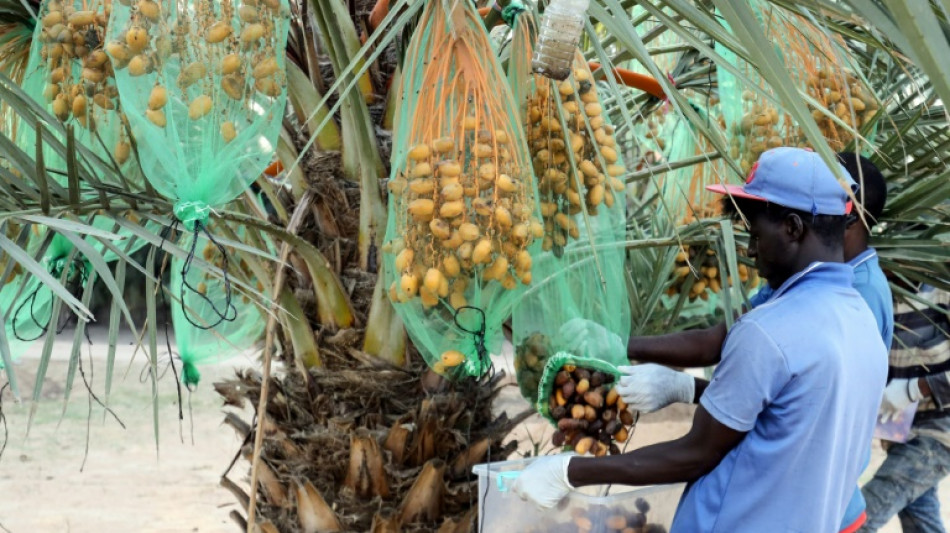
-
 France's Cizeron and Fournier Beaudry snatch Olympic ice dancing gold
France's Cizeron and Fournier Beaudry snatch Olympic ice dancing gold
-
Man City close on Arsenal, Liverpool end Sunderland's unbeaten home run

-
 Van Dijk sinks Sunderland to boost Liverpool's bid for Champions League
Van Dijk sinks Sunderland to boost Liverpool's bid for Champions League
-
Messi out with hamstring strain as Puerto Rico match delayed

-
 Kane helps Bayern past Leipzig into German Cup semis
Kane helps Bayern past Leipzig into German Cup semis
-
Matarazzo's Real Sociedad beat Athletic in Copa semi first leg

-
 Arsenal stroll in Women's Champions League play-offs
Arsenal stroll in Women's Champions League play-offs
-
Milei labor law reforms spark clashes in Buenos Aires

-
 Bangladesh's political crossroads: an election guide
Bangladesh's political crossroads: an election guide
-
Bangladesh votes in landmark polls after deadly uprising
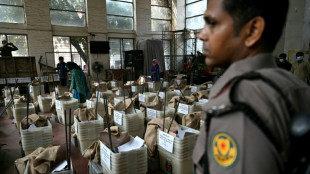
-
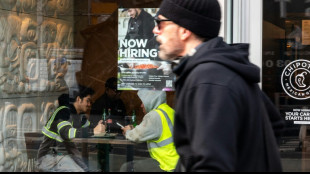 US stocks move sideways after January job growth tops estimates
US stocks move sideways after January job growth tops estimates
-
Man City close in on Arsenal with Fulham cruise

-
 Mike Tyson, healthy eating advocate for Trump administration
Mike Tyson, healthy eating advocate for Trump administration
-
LA 2028 Olympics backs chief Wasserman amid Epstein uproar

-
 Brighton's Milner equals Premier League appearance record
Brighton's Milner equals Premier League appearance record
-
Seahawks celebrate Super Bowl win with title parade

-
 James Van Der Beek, star of 'Dawson's Creek,' dies at 48
James Van Der Beek, star of 'Dawson's Creek,' dies at 48
-
Scotty James tops Olympic halfpipe qualifiers as he chases elusive gold

-
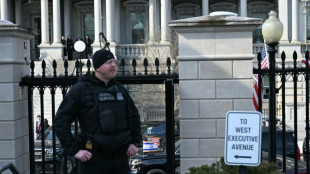 Trump tells Israel's Netanyahu Iran talks must continue
Trump tells Israel's Netanyahu Iran talks must continue
-
England to face New Zealand and Costa Rica in pre-World Cup friendlies

-
 'Disgrace to Africa': Students turn on government over Dakar university violence
'Disgrace to Africa': Students turn on government over Dakar university violence
-
Simon in credit as controversial biathlete wins Olympic gold

-
 McIlroy confident ahead of Pebble Beach title defense
McIlroy confident ahead of Pebble Beach title defense
-
US top official in Venezuela for oil talks after leader's ouster

-
 Ukraine will only hold elections after ceasefire, Zelensky says
Ukraine will only hold elections after ceasefire, Zelensky says
-
WHO urges US to share Covid origins intel

-
 TotalEnergies can do without Russian gas: CEO
TotalEnergies can do without Russian gas: CEO
-
Instagram CEO denies addiction claims in landmark US trial
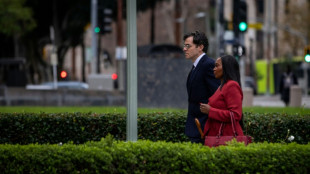
-
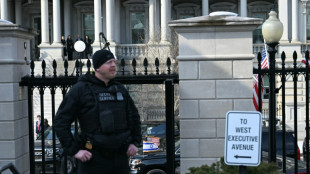 Israel's Netanyahu pushes Trump on Iran
Israel's Netanyahu pushes Trump on Iran
-
EU leaders push rival fixes to reverse bloc's 'decline'

-
 BMW recalls hundreds of thousands of cars over fire risk
BMW recalls hundreds of thousands of cars over fire risk
-
Norris quickest in Bahrain as Hamilton calls for 'equal playing field'
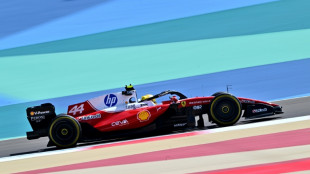
-
 Colombia election favorite vows US-backed strikes on narco camps
Colombia election favorite vows US-backed strikes on narco camps
-
French court to rule on July 7 in Marine Le Pen appeal trial
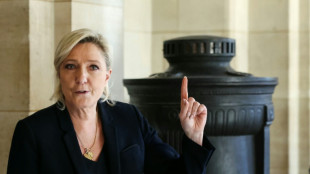
-
 Jones says England clash 'perfect game' for faltering Scotland
Jones says England clash 'perfect game' for faltering Scotland
-
Norway's ex-diplomat seen as key cog in Epstein affair
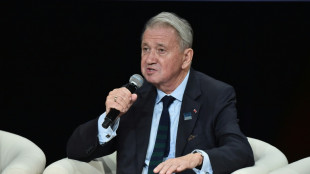
-
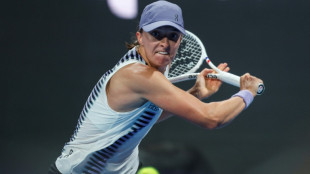 Swiatek fights back to reach Qatar Open quarter-finals
Swiatek fights back to reach Qatar Open quarter-finals
-
AI cracks Roman-era board game
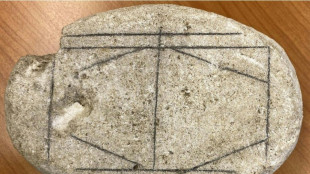
-
 Motie spins West Indies to victory over England at World Cup
Motie spins West Indies to victory over England at World Cup
-
NBA bans 4 from Pistons-Hornets brawl, Stewart for 7 games

-
 Shakira to rock Rio's Copacabana beach with free concert
Shakira to rock Rio's Copacabana beach with free concert
-
Cyclone batters Madagascar's second city, killing 31

-
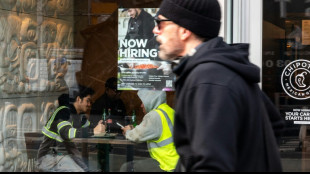 Stocks spin wheels despite upbeat US jobs data
Stocks spin wheels despite upbeat US jobs data
-
Arsenal boss Arteta lauds 'extraordinary' Frank after Spurs axe

-
 New drones provide first-person thrill to Olympic coverage
New drones provide first-person thrill to Olympic coverage
-
Instagram CEO to testify at social media addiction trial

-
 Deadly mass shooting in Canada: What we know
Deadly mass shooting in Canada: What we know
-
NATO launches 'Arctic Sentry' mission after Greenland crisis

-
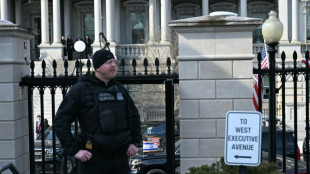 Israel's Netanyahu at White House to push Trump on Iran
Israel's Netanyahu at White House to push Trump on Iran
-
Canada stunned by deadliest school shooting in decades
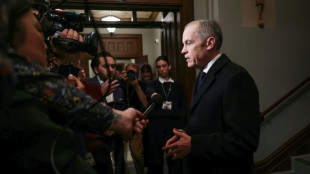

Libya farmer breaks new ground with outlier date variety
In the Libyan countryside, farmer Ismail Ben Saoud has launched an agricultural experiment, banking on Mejhoul dates -- a premium variety cherished across the Arab world but untested in such a humid coastal climate.
Ben Saoud's five-hectare (12-acre) farm in Misrata, western Libya, stands out in the landscape that is dotted by olive and citrus trees.
Eight years after taking the leap, he says his 700 palm trees now produce high-quality Mejhoul dates which he hopes will reach international markets soon.
"People have claimed that these palms couldn't survive here, especially near the sea," said Ben Saoud, 42.
"But with persistence and careful experimentation, we are proving them wrong."
Mejhoul dates, native to Morocco's semi-arid regions, are famed for their large size, tender texture and rich sweetness.
Traditionally thought unsuitable for Mediterranean climates, the variety has exceeded Ben Saoud's expectations.
Using organic fertilisers and refining techniques over time, Ben Saoud now anticipates reaching full production capacity in just two years.
"The harvest has been very satisfactory," he said about this year's output.
"Another year or two and it will be optimal. We improve from year to year."
For Libyans and others across the Arab world, dates are a treasured food.
A staple sweet during festivities, they hold cultural as well as religious value, traditionally eaten to break the daily fast during the Muslim month of Ramadan.
Mejhoul dates go for up to 80 Libyan dinars (around $16) per kilogramme in local markets, far more than the price tag attached to other varieties, as low as six and up to 20 dinar.
But for many customers, Mejhoul prices match their quality, with an unwavering demand among Libyans preferring locally produced goods.
- 'Growing interest' -
The country has faced a host of woes since a 2011 NATO-backed uprising overthrew and killed longtime dictator Moamer Kadhafi, plunging Libya into instability and conflict.
Even before that, decades of near-exclusive reliance on oil revenue left many of Libya's sectors underdeveloped.
But many have been striving to bring around Libyan agriculture.
In Misrata, a major port city and commercial hub about 200 kilometres (120 miles) from the capital Tripoli, supermarkets are stocked with a variety of date products.
They run the gamut from molasses and pastes used in traditional pastries like makroudhs, to novel concoctions such as stuffed dates smothered in chocolate.
"The quality of Libyan dates has improved noticeably since the 2011 war," said Najwa, an Egyptian nurse on vacation, shopping for her favourite varieties.
"There's more care put into growing and preparing them now."
Salah Shagan, a Libyan agriculture expert, said that "more Libyans are turning to farming in recent years", with a "growing interest" in olives, vegetables and dates.
"These efforts not only bring income, but also revive our connection to the land."
Libya now has over 10 million date palms, producing more than 50,000 tonnes of fruit annually, according to the agriculture ministry.
Much of this production satisfies local demand, but farmers also aim to make it to international markets.
For Ben Saoud, exporting Mejhoul is his next major bet.
"Our local demand is already strong, so we must ensure we can meet that before expanding further," he said, walking through his orchard with his two young daughters, their mouths full of fresh dates.
P.Stevenson--AMWN

